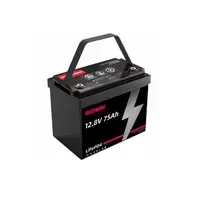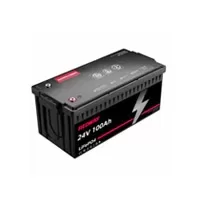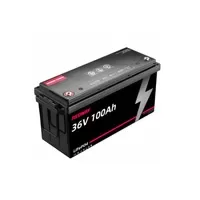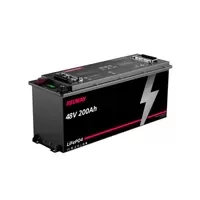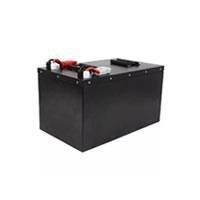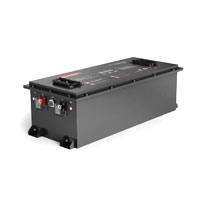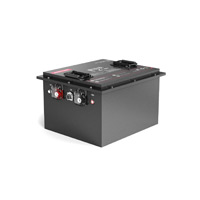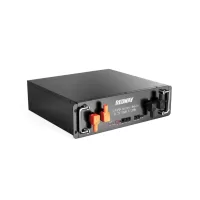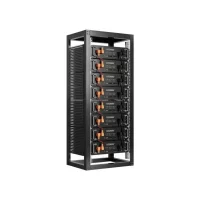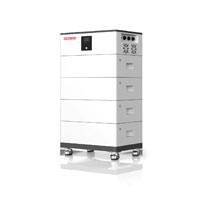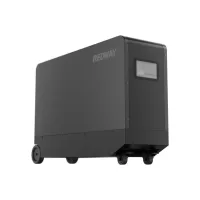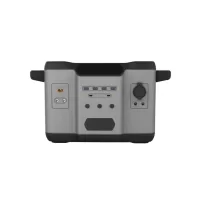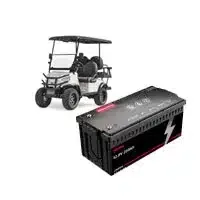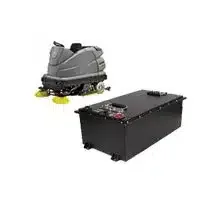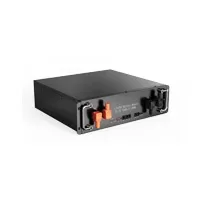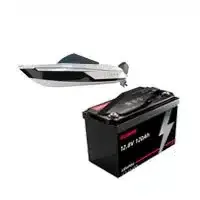Discover the potential game-changer in powering your devices – lithium batteries. In this post, we’ll explore if lithium batteries can surpass traditional deep cycle batteries, offering exceptional performance and longevity. Whether you’re an outdoor enthusiast or a business owner, this article aims to guide you through the comparison of lithium vs. deep cycle batteries for your energy needs.
Differences between Lithium Batteries and Deep Cycle Batteries
Discover the key differences between lithium batteries and deep cycle batteries, the two powerhouses used in various applications. This guide breaks down their distinctions, providing insights into chemistry, charging capabilities, weight, efficiency, and cost.
- Chemistry:
- Lithium batteries use advanced lithium-ion technology, offering higher energy density and a longer lifespan.
- Deep cycle batteries typically rely on lead-acid or gel electrolyte chemistry.
- Charging Capabilities:
- Lithium batteries allow faster charging without compromising lifespan, making them suitable for quick recharging needs.
- Deep cycle batteries have slower charging rates.
- Weight and Size:
- Lithium batteries are significantly lighter and more compact than deep cycle batteries with equivalent capacity.
- This makes lithium batteries ideal for portable devices and limited-space installations.
- Efficiency:
- Lithium batteries maintain a consistent voltage throughout discharge cycles, ensuring better and sustained performance.
- Deep cycle batteries gradually lose voltage during discharge, resulting in decreased efficiency over time.
- Cost:
- While lithium batteries may have higher upfront costs, their extended lifespan and superior performance often offer better long-term value.
- Deep cycle batteries may have lower initial costs but could incur more significant maintenance and replacement expenses.
Conclusion: While both lithium and deep cycle batteries serve as rechargeable power sources for continuous use, understanding their distinct features helps in choosing the right fit for specific applications.
Advantages of Using a Lithium Battery over a Deep Cycle Battery
Explore the game-changing benefits of choosing lithium batteries over traditional deep cycle options. This guide highlights the key advantages, emphasizing longevity, energy density, charging speed, lightweight design, efficiency, and maintenance-free operation.
- Longer Lifespan:
- Lithium batteries outshine deep cycle counterparts with a remarkable lifespan of up to 10 years or more, offering prolonged service with proper maintenance.
- Higher Energy Density:
- Enjoy the advantage of higher energy density in lithium batteries, enabling them to store more power efficiently in compact sizes, perfect for space-limited applications like RVs and boats.
- Faster Charging:
- Experience rapid charging capabilities with lithium batteries, reducing waiting times and ensuring more time for your activities compared to slower-charging deep cycle batteries.
- Lightweight and Compact:
- Benefit from the lightweight and compact design of lithium batteries, making them significantly easier to handle and transport in comparison to traditional lead-acid deep cycle alternatives.
- Better Efficiency:
- Harness the high efficiency levels of lithium batteries, translating into longer run times and enhanced overall performance by efficiently converting stored energy into usable power.
- Maintenance-Free Operation:
- Say goodbye to regular maintenance tasks. Lithium batteries offer hassle-free, maintenance-free operation, eliminating the need for watering and terminal cleaning required by deep cycle batteries.
Embrace the superior advantages of lithium batteries for an elevated power solution experience!
Disadvantages of Using a Lithium Battery over a Deep Cycle Battery
Discover the potential drawbacks associated with choosing lithium batteries over traditional deep cycle options. This guide outlines key disadvantages, including higher initial costs, charging complexities, limited availability, incompatibility with existing systems, and heat management requirements.
- Higher Initial Cost:
- Lithium batteries come with a downside of a higher initial cost compared to more affordable deep cycle batteries, potentially posing a challenge for budget-conscious users.
- Complexity in Charging and Monitoring:
- Unlike straightforward charging processes for deep cycle batteries, lithium batteries require specialized equipment and monitoring systems, introducing complexity and additional costs to the battery management process.
- Limited Availability:
- Despite growing popularity, lithium batteries may not be as readily available as deep cycle batteries, especially in specific areas or for certain applications, creating potential challenges for users with immediate replacement needs.
- Incompatibility with Existing Systems:
- Switching from deep cycle to lithium batteries may not be seamless, as differences in voltage requirements or compatibility with existing systems may necessitate costly modifications and adaptations.
- Heat Management Requirements:
- Sensitivity to high temperatures makes heat management crucial for lithium batteries. Ineffective heat control can lead to reduced performance, shorter lifespan, or safety hazards, demanding extra attention to operational and storage conditions.
Consider these factors carefully to make an informed decision regarding the switch from deep cycle batteries to lithium, keeping your specific needs and circumstances in mind.
Applications for Lithium Batteries in Place of Deep Cycle Batteries
Explore the diverse applications of lithium batteries, surpassing traditional deep cycle options due to their exceptional performance. From the marine industry to renewable energy, RVs, camping, and telecommunications, lithium batteries are revolutionizing various sectors.
- Marine Industry:
- Lithium batteries offer a lightweight and compact alternative for boats, providing reliable power for motors, navigation systems, and onboard electronics without compromising space or adding excessive weight.
- Renewable Energy Sector:
- In the realm of renewable energy, lithium batteries shine, efficiently storing large amounts of energy from solar panels and wind turbines. They serve as a dependable source, delivering power when needed to support sustainable energy solutions.
- RVs and Camping:
- Lithium batteries are gaining popularity in the RV and camping world for their extended runtime. Whether powering essential appliances or running entertainment systems during outdoor adventures, lithium batteries offer reliable power without frequent recharging.
- Telecommunications:
- Industries like telecommunications rely on uninterrupted power supply, making lithium batteries invaluable. They provide a stable source of backup power, supporting critical communication systems during outages or emergencies.
As the advantages of lithium batteries become more recognized, their applications are expanding across diverse sectors, promising further advancements and emerging possibilities in the future.
Cost Comparison: Is It Worth Switching to a Lithium Battery?
Explore the cost considerations associated with switching from a deep cycle battery to a lithium battery. While lithium batteries offer longevity and efficiency benefits, their higher upfront cost prompts a critical evaluation of whether the switch is economically viable.
- Initial Cost and Longevity:
- Lithium batteries boast a longer lifespan and greater efficiency, reducing the need for frequent replacements compared to deep cycle batteries. However, their initial investment is notably higher, reflecting the advanced technology and materials used in manufacturing.
- Maintenance and Performance:
- Lithium batteries require less maintenance and can be discharged more deeply without compromising performance, contributing to long-term cost savings. Despite these advantages, users should consider factors like installation costs and compatibility with existing equipment.
- Budget Considerations:
- The decision to switch to a lithium battery should align with specific needs and circumstances. While lithium batteries offer enhanced performance and reduced maintenance, budget constraints and existing setups functioning well with deep cycle batteries may influence the cost-effectiveness of the switch.
Before transitioning to lithium technology, carefully assess the benefits and costs. Expert consultation can provide tailored insights to help make an informed decision based on your unique situation.


